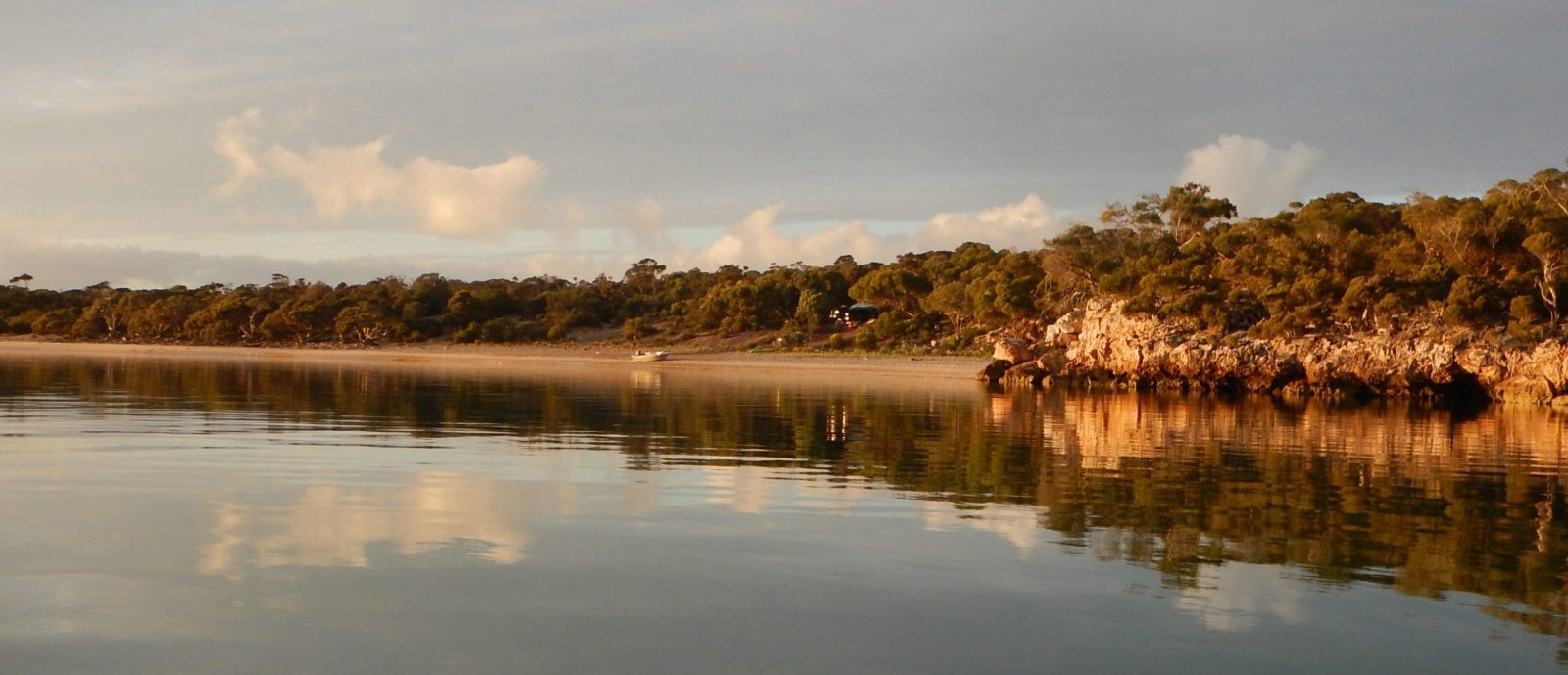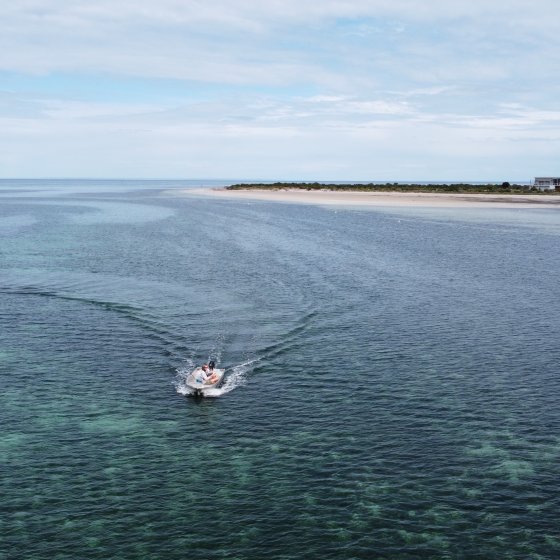- Home
- Environmental Themes
- Sea
- Pressures and Responses
- Resource Use
Resource Use
Fishing and Boating
Pressures
Commercial and recreational fishing and boating.
Impacts
- Reduction of fish stocks, for example, snapper, from potential over-catch. It should be noted that fish stocks may also be impacted by environmental conditions.
- Bycatch from commercial fisheries.
- Damage to resource due to fishing methods, for example, bottom trawling.
- Entanglement of marine mammals, eg dolphins in seine nets.
Responses
- Implementation of recreational fishing limits by PIRSA including catch numbers and size limits.
- Development of fisheries management plans for commercial fisheries that specify total allowable catch and quotas.
- Fishing closures and research undertaken by PIRSA to help protect fish stocks. For example, the Snapper closure, research and recovery.
- Seeds for Snapper to help restore seagrass habitat for fish species and support the recovery of fish stocks.
- Protection of marine areas from fishing within marine park sanctuary zones.
- The Sardine Industry Association has developed a code of practice (COP) to mitigate interactions with dolphins. An FRDC project is underway to further assess the impacts of the sardine fishery on dolphins and assessment of dolphin interactions and the effectiveness of the COP was undertaken by SARDI.
- Many businesses are seeking independent environmental certification of their products and aquaculture/fishing methodologies, for example, for Western King Prawns and Australian Sardines.
Opportunities
- Investigate reasons why the snapper fishery became depleted to reduce the risk of it returning to these levels once the fishery is reopened and potentially help prevent other fisheries from suffering the same fate.
- Implementation of strategies to facilitate the recovery of threatened and depleted fish stocks within Gulf St Vincent and Spencer Gulf.
Exploration
Pressures
- Exploration and seismic testing by the oil and gas industry. It should be noted that marine exploration and drilling activities are undertaken in Commonwealth waters and, therefore, are not under the legislative control of the South Australian Government.
Impacts
- Noise from seismic airguns may impact commercial fisheries such as Southern Bluefin Tuna and Southern Rock Lobster, and marine mammals such as whales.
- The risk of oil spills may result in impacts to South Australia’s coastal environment.
Responses
- Marine seismic surveys are regulated by the National Offshore Petroleum Safety and Environmental Management Authority (NOPSEMA).
- A parliamentary inquiry was undertaken to examine the impact of seismic testing on fisheries and the marine environment. A number of recommendations were made.
- An independent audit of NOPSEMA’s consideration of exploration in the Great Australian Bight was undertaken in October 2021 to describe what actions are being undertaken or have been completed to improve communication of requirements for offshore oil and gas companies to manage environmental risks.
Tourism

Pressures
- Tourism and human disturbance including camping, boating and '4WDing'.
Impacts
- Dune destruction and erosion, and loss of vegetation from 4WDing, people accessing these areas by foot and camping areas.
- Campers and coastal visitors leaving rubbish, including general waste and toileting.
- Impacts and disturbance to plants and animals that live in the sand by vehicles, people or pets that may disrupt the food web of, for example, the Hooded Plover.
Responses
- Capping numbers at camp sites and providing dedicated camp sites, for example, Eyes on Eyre, which has successfully reduced impacts to coastal camping areas on Eyre Peninsula.
- Expiation of people found littering.
- Signage at tourist areas alerting people of sensitive habitats and species.
Opportunities
- Facilitate regulation and compliance of coastal areas. Expand cross-authorisation of officers under different legislation to cover greater areas of our marine coastline.
- Identify areas with high environmental values (eg nesting birds, endangered species) and modify access to these locations.
- Easy access to bins and toilets at major camping and day use areas.
- Better education and information for the camping and 4WDing community. Investigate how this information could be effectively delivered, for example, via TV shows.
Vessels
Pressures
Use of vessels on marine waters including fishing boats, tourism boats and transport ships.
Impacts
- Interactions with marine mammals such as whales and dolphins that may result in behaviour change.
- Collisions between vessels and marine mammals.
- Oil fouling of seabirds and marine creatures.
Responses
- Reporting requirements for oil spills.
- People must keep 50 m away from a dolphin and 100 m away from a whale.
- Vessel speed restrictions.
